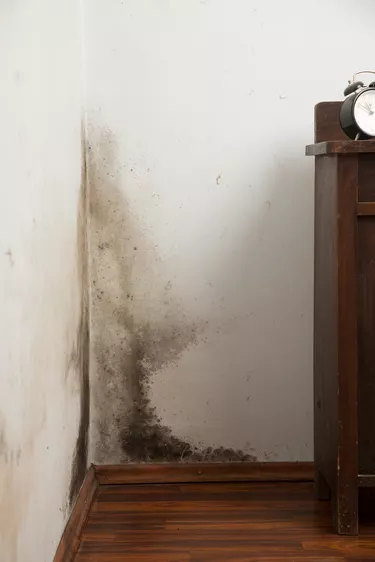
If mold is a problem in your apartment, you usually can see or smell it, and it may cause you or fellow renters to become ill. While most states don't offer specific protection for renters of mold-infested properties, you may be able to break your lease based on state laws requiring your landlord to provide you with a habitable apartment.
Check Your Lease
Video of the Day
See if your lease contains provisions that protect you in case of mold. Some may have clauses that explicitly relieve landlords from the responsibility of mold. However, at least one previous court ruling stated that such a clause was not in the best interest of the public. Regardless, if the presence of mold is the result of your failure to keep the apartment clean and free of moisture, the landlord likely is not responsible
Video of the Day
Know Your Rights
No federal laws are in place to protect tenants from the dangers of mold in rental properties. However, a few states have mold-specific laws, including California, Indiana, Maryland, New Jersey and Texas. Check your state's Environmental Protection Agency office for specific details.
If you don't live in one of the states with specific mold protection, you may be covered by the landlord's duty to provide a habitable premises. In every state except Arkansas, it's implied that landlords will maintain their rental properties in livable and safe condition. For instance, while Oregon state law doesn't specify that apartments be free of mold, it does require landlords to provide effective waterproofing of the roof, windows, doors and exterior walls. They also must maintain plumbing and other systems, such as air conditioning. If the mold in your apartment is caused by a leaky pipe, or water coming in through window casements, your landlord may be bound by state law to fix the problem. If he doesn't, you may be able to sue him to fix it, or break the lease if he does not.
Warning
Seek legal advice before you break your lease. Depending on the laws in your state and your specific situation, you may suffer serious consequences if your landlord sues.
Document the Mold
Begin to gather documentation when you first notice the problem -- it could come in handy if you have problems working with your landlord later. Take photos of the mold and keep a written record of the date you first noticed the condition, where the mold is located and any other relevant details. Ask other tenants if they're experiencing the same issue. If so, obtain statements and details from them.
Notify the Landlord
Notify your landlord about the mold in writing. Be specific about where the mold is, and the severity of the problem. Outline the steps you've taken to resolve the situation yourself and the resolution you expect from him. Ask for a specific timeline for repairs. If others in the building have the same issue, include the statements you've obtained.
If the landlord agrees to fix the problem, send him another letter confirming his agreement and timeline.
Break the Lease or Take Other Measures
If the landlord refuses to work with you to resolve the problem, you have several options:
- Get state health inspectors involved.
- Withhold the rent -- but check your state's laws regarding rent withholding
- Pay for mold removal, then deduct it from your rent
- Move out and break the lease
- Continue to pay rent and sue the landlord
Any of these measures, including breaking your lease, can have legal consequences. Before you move out, make sure that you have met all the other conditions of the lease. For instance, if you're already behind on your rent when you notify the landlord of the mold condition, your position won't be very strong if the landlord takes you to court.
Tip
Take every possible measure to work out the issue before breaking your lease. If you end up in court and can show the judge that you tried diligently to cooperate with the landlord, you're less likely to lose a lawsuit.